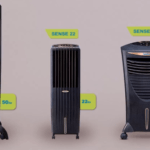Introduction
To maintain a pleasant and healthy interior atmosphere, (HVAC) systems are crucial in every building. A broken or malfunctioning HVAC system could cause significant pain in the neck. Homeowners and property managers in this situation might try to address the problem themselves or contact HVAC maintenance or repair services in NYC.
Nevertheless, if you don’t have the training and expertise, HVAC repairs can lead to costly mistakes and further damage to the system.

This article aims to provide readers with a helpful guide detailing the dos and don’ts of HVAC repair. Homeowners and building managers may avoid making expensive errors and ensure that their HVAC systems are operating correctly and efficiently if they follow the advice in this article and put it into practice.
Dos and Don’ts of HVAC System Repair
The (HVAC) systems put in a lot of effort to ensure that the interior surroundings remain pleasant and healthy, but these systems are not immune to failures or malfunctions. In these circumstances, you must be aware of the Dos and Don’ts so you don’t accidentally break the system.
Dos of HVAC System Repair
Understand Your HVAC System
A thorough understanding of your HVAC system’s inner workings is mandatory before you undertake any repairs. The typical HVAC setup includes a heater, an air conditioner, ducting, and a control panel. Fixing issues requires a thorough understanding of how the various parts perform individually and in concert. For further in-depth help with upkeep and problems, see the owner’s handbook that came with your system.
When in Doubt, Consult a Certified Specialist
Since HVAC systems are so sophisticated, it’s best to leave troubleshooting them to the experts whenever possible. If you are not confident in your ability to make repairs yourself, it is strongly recommended that you contact an HVAC specialist. Contact Interstate Air Conditioning & Heating if you are looking for the most skilled certified professional. Solving difficult problems without the necessary expertise and experience might result in further harm and more expensive repairs.
Maintenance Scheduling
Regular maintenance may help avoid HVAC failures and malfunctions, which is always preferable to fixing a problem after it has already occurred. Changing air filters, cleaning coils, and monitoring refrigerant levels are all routine maintenance. This maintenance should be done once a year, ideally before the heating and cooling seasons begin.
Don’ts of HVAC System Repair
Ignore Early Warning Signs
Usually, there will be some advance notice before any significant problems emerge with your HVAC system. Abnormal sounds, unpleasant scents, and a general decline in efficiency might all indicate a problem. Neglecting these red flags might lead to more severe issues and expensive repairs.
Make Repairs without the Necessary Equipment
Repairs to HVAC systems often need specialized tools and protective gear. If you try to fix anything without the appropriate tools and protective gear, you might end up hurting yourself or doing more harm to the system. Before undertaking any kind of repair, it is crucial to ensure that you have all of the appropriate tools and protective gear.
Repair Something Beyond Your Capacity
Repairs to HVAC systems often need specific expertise and prior experience. If you attempt fixes that are above your skill level, you might make expensive errors and cause severe harm to the system. It is essential to be aware of your limits and get in touch with an HVAC specialist for all your residential and commercial HVAC needs.
Conclusion
In conclusion, heating, ventilation, and air conditioning (HVAC) systems are crucial for every modern facility. Do-it-yourself (DIY) repairs may seem a cost-effective choice; however, repairing HVAC systems without the appropriate expertise and experience may lead to expensive errors and cause more damage to the system, So always take help from the expert and enhance your HVAC system’s life by adhering to the dos and don’ts.
Price of HVAC Per Square Foot.





